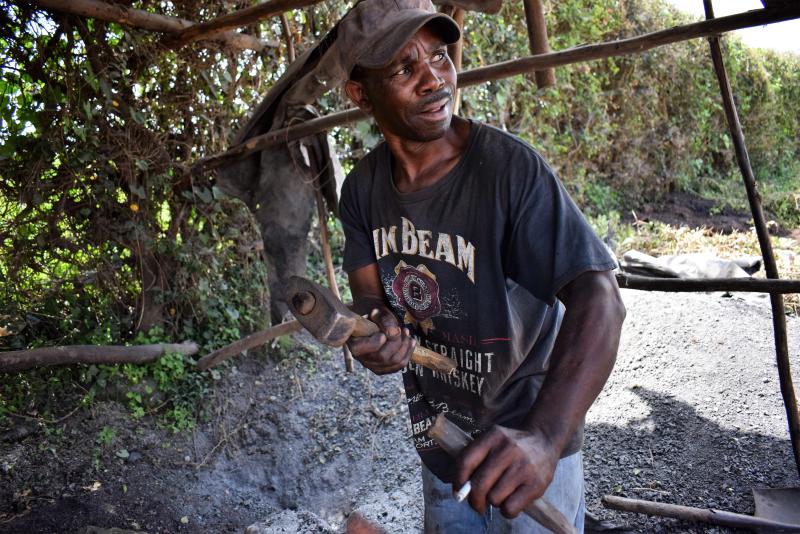×
The Standard e-Paper
Kenya’s Boldest Voice

It’s rare to encounter a blacksmith outside of books and movies these days. But in the outskirts of Gakoromone market in Meru lives one.
Jediel Kimathi, 55, runs his business from an unassuming shack on the southern edge of the biggest market in Meru. Together with his two assistants, he’s open for business from 6am, which is when they source for metal and coal before customers start streaming in.